~Russia illegally detains 25,000 Kremlin prisoners
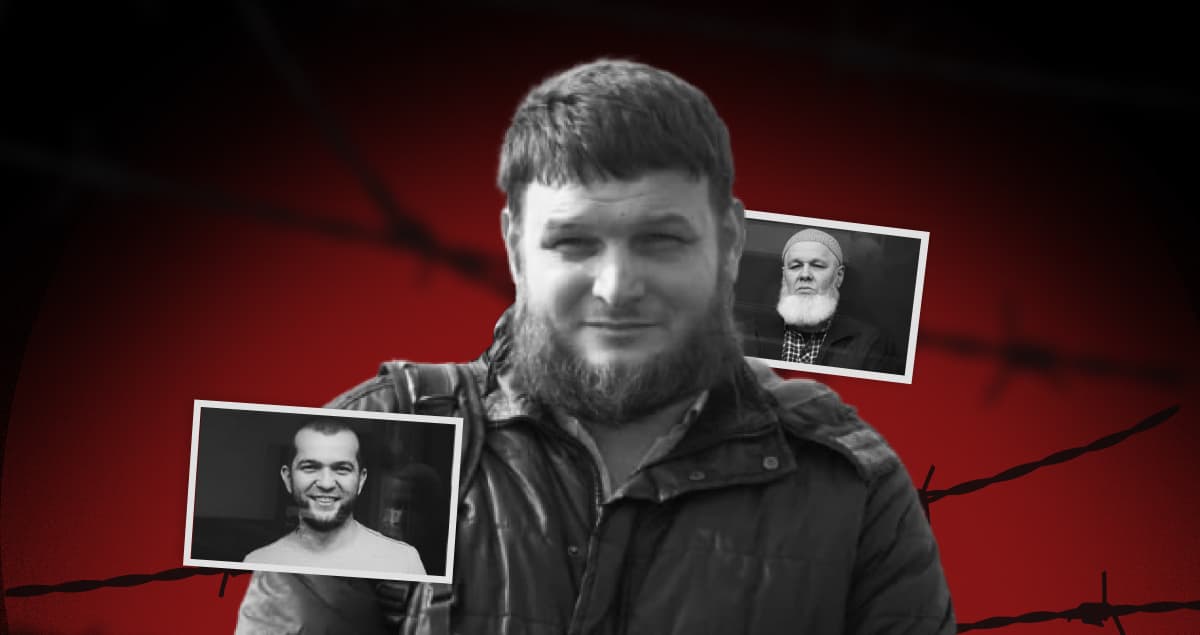
According to the Ukrainian Parliament Commissioner for Human Rights, Dmytro Lubinets, this is the number of civilians abducted by the Russian Federation.
The ZMINA Human Rights Centre has found that at least 67 prisoners require urgent medical care and may die unless they receive it.
During the full-scale invasion, the National Police began investigating the enforced disappearance of 8,800 people.
Russian Children's Ombudsman Maria Lvova-Belova claims Russia has illegally abducted over 700,000 children from Ukraine.
The Media Initiative for Human Rights has identified about one hundred places where abducted civilians are held.
The Mission of the President of Ukraine in the Autonomous Republic of Crimea (Qırım) confirms 218 illegally imprisoned Ukrainian citizens, 132 of whom are Qırımtatarlar.
During the full-scale war, 3,981 Ukrainian citizens, including 171 civilians, were returned to Ukraine.
Political prisoner Rustem Seithaklilov's health deteriorates in Russian prison
Kremlin prisoner Rustem Seithaklilov, sentenced to 14 years' imprisonment in the Hizb ut-Tahrir case, has deteriorated in health, suffering chronic pain and back problems. Rustem is also forbidden to perform morning prayers in the strict regime penal colony No. 9 in Petrozavodsk. This was reported by the prisoner's wife, Elzara.
Rustem met his mother and wife on his 41st birthday, January 18. His mother, despite her elderly age, travelled more than 2,700 kilometres to Karelia to see her son for the first time in six years. His wife Elzara travelled alone, as she did not dare to take her three young children on such a long and unknown journey.
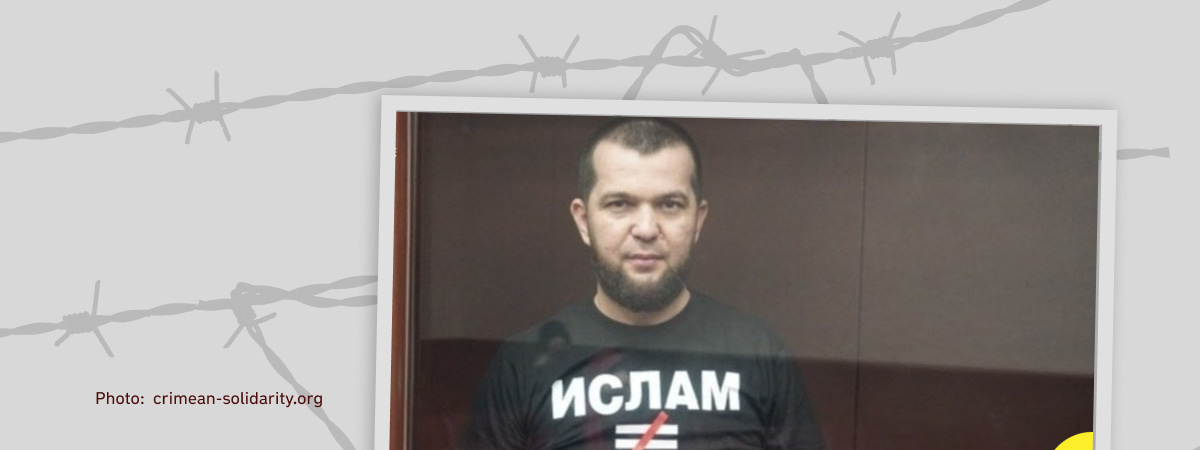
Rustem's health is deteriorating — he suffers from chronic headaches and back problems, which have remained untreated even after five days of injections.
The colony's administration only allows the condemned Muslims to pray in their free time, which does not always coincide with the time of prayer. The restrictions apply to all five daytime prayers. After being transferred to the colony in October 2024, Seitkhalilov's Koran was confiscated and has not yet been returned, citing the ban on its use.
"For a practising Muslim, this is a major problem and a violation of his right to practise his religion as he should," says Elzara.
Crimean political prisoner Bekirov sent to isolation cell for performing morning prayers
Crimean Tatar journalist Remzi Bekirov, who was sentenced to 19 years in prison by the occupiers in the Hizb ut-Tahrir case, has been sent to the isolation ward of Colony No. 33 in the Republic of Khakassia for five days for performing morning prayers. This was reported to Crimean Solidarity by Bekirov's lawyer, Edem Semedliaiev.
Bekirov is a citizen journalist who covered searches and trials of Crimean political prisoners, in particular, those of Hizb ut-Tahrir and initiated collective assistance to their families. He has three minor children.
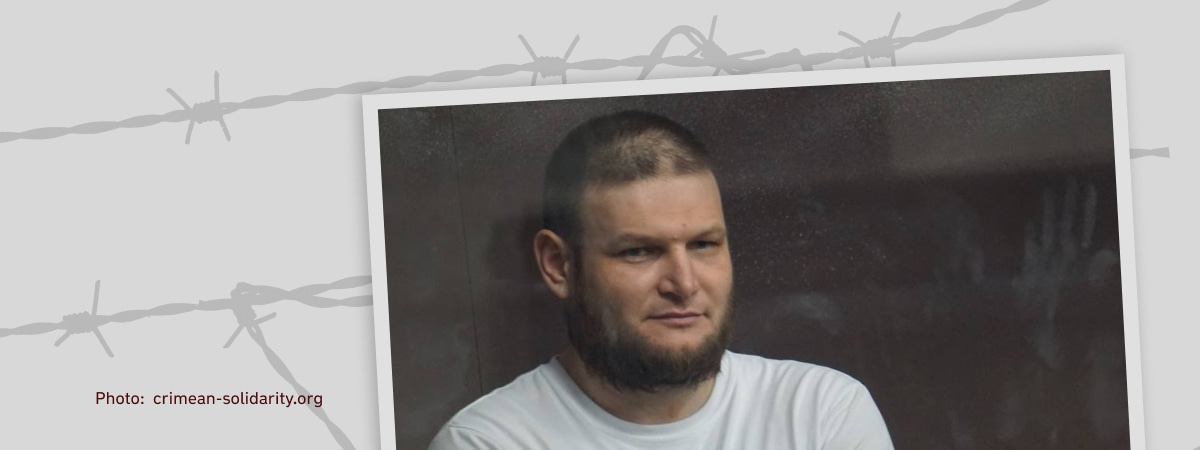
The political prisoner's wife, Khalide Bekirova, had not received letters from her husband for a long time and began to suspect that he might have been placed in a pre-trial detention centre. Lawyer Semedliaiev learned about this during a court hearing on January 20. According to Bekirov, five other Muslims were sent to the isolation ward together with him, who were punished for the morning prayers, calling it a violation of the regime.
In the six months in the colony, the journalist has already been sent to the isolation ward seven times for formal reasons — praying at night, greeting or not wearing a hat. He also spent two months in harsh conditions of detention, was unable to call his family, and during a visit in December, he said that he had lost 15 kg due to refusing to eat pork. He also noted that the colony prohibited him from approaching his bed during the daytime and that the warders were "trying to suppress [him] morally".
Political prisoner Oleh Fedorov was transferred to another Russian colony, where he was immediately placed in a punishment cell
Ali (Oleh) Fedorov, a defendant of the second Bakhchysarai group in the Hizb ut-Tahrir case, was transferred from the penal colony No. 5 in Sarapul, to the penal colony No. 8 in the village of Khokhryaki, Udmurt region of Russia, where he was placed in a punishment cell. This was reported by Crimean Solidarity with reference to the prisoner's wife, Iryna Fedorova.
Ali Fedorov is an entrepreneur from Bakhchysarai (Bağçasaray) who, before his arrest, actively supported Crimean Tatar political prisoners, participated in information campaigns and flash mobs, and provided financial assistance to the families of prisoners. He was sentenced to 13 years in prison in 2022.
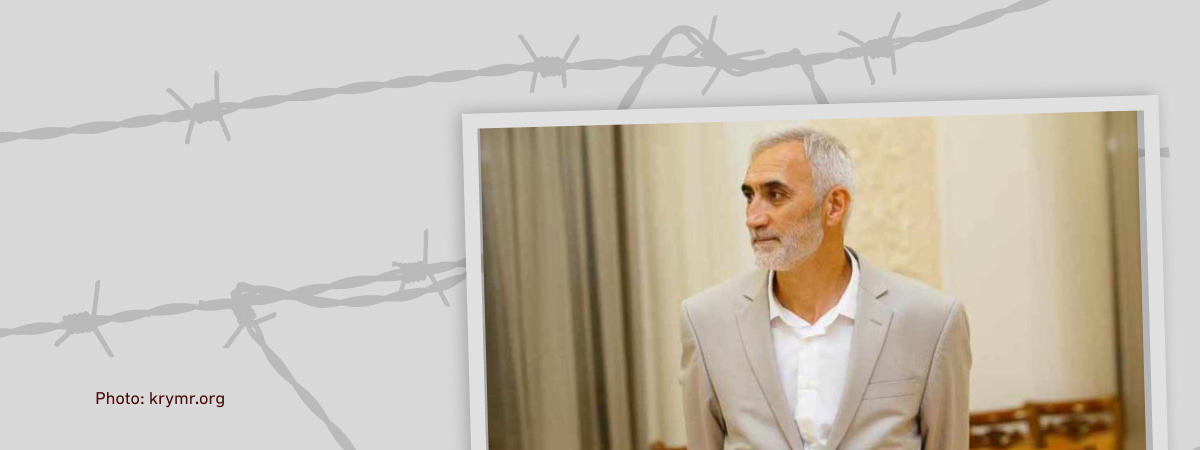
Fedorov was transferred to a new colony due to the disbandment of the previous one, but the order issued in the Sarapula colony to stay in the punishment cell remained in force for the IC-8 in the village of Khokhryaki. The Crimean Muslim said in a letter that his detention in the isolation ward was extended "almost until the end of February".
"Oleh writes that the conditions are the same as they were in Sarapul. He doesn't write anything about his health," says Iryna, the prisoner's wife.
Crimean political prisoner Servet Haziiev transferred from Vladimir to an unknown destination
64-year-old Crimean Tatar Servet Haziiev, sentenced to 13 years in prison in the Hizb ut-Tahrir case, was transferred from Prison No. 2 in the Vladimir region in December 2024. Since then, his family has had no information about his whereabouts. This was reported to Crimean Solidarity by the prisoner's sister, Svitlana Abliamitova.
According to her, she last communicated with her brother in early December, when he called and said he could be transferred to the colony. She sent him money to an account to buy things for the trip, and on December 19, she sent a letter asking if he had received the money but received no reply.
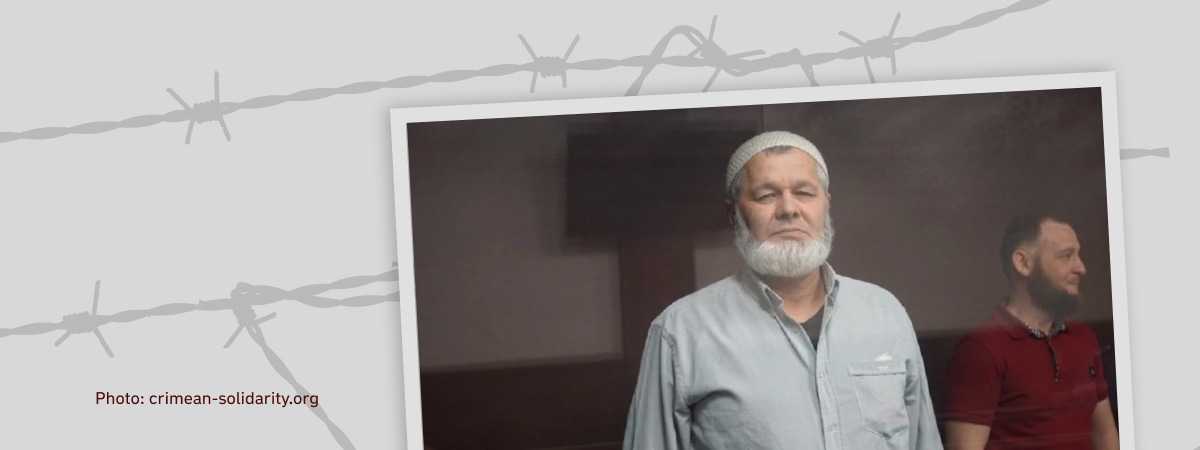
At first, Svitlana thought it was difficult for her brother to write because of the effects of his stroke in 2021 and the beatings in the psychiatric hospital. But when there were no letters, she wrote again on January 9 and waited until January 16. Then she contacted the prison's accounting department, where she was told that Servet Haziiev was no longer in prison — he had been transferred, but it was not specified where. On January 28, Svitlana appealed to the Federal Penitentiary Service of Russia and the Vladimir Oblast Penitentiary Service, demanding to know her brother's whereabouts.
"I have not known where he is for a month, and there has been no news from him," said the political prisoner's sister.
Mariupol defender Lev Kashperskyi sentenced in absentia in occupied Donetsk
The so-called "supreme" occupation court in Donetsk sentenced in absentia a soldier of the Azov Brigade, Lev Kashperskyi, accusing him of cruelty to civilians and attempted murder. This was reported by Zmina.
The occupation court sentenced Lev Kashperskyi in absentia to 24 years in a maximum security colony and put him on the international wanted list. He is accused of allegedly ill-treating civilians during the defence of Mariupol, in particular during the fighting at the Illich Iron and Steel Works between March 17 and 25, 2022.
According to the Russians, Kashperskyi, as a howitzer commander, allegedly ordered the shelling of residential buildings in the village of Staryi Krym, Donetsk region, which resulted in the destruction of private homes with civilians. In the same court, Azov commander Denys Prokopenko was sentenced in absentia to 24 years in prison, accused of giving orders to Lev Kashperskyi, Serhii Budykiv, Andrii Tokar and Herman Matiushin.


